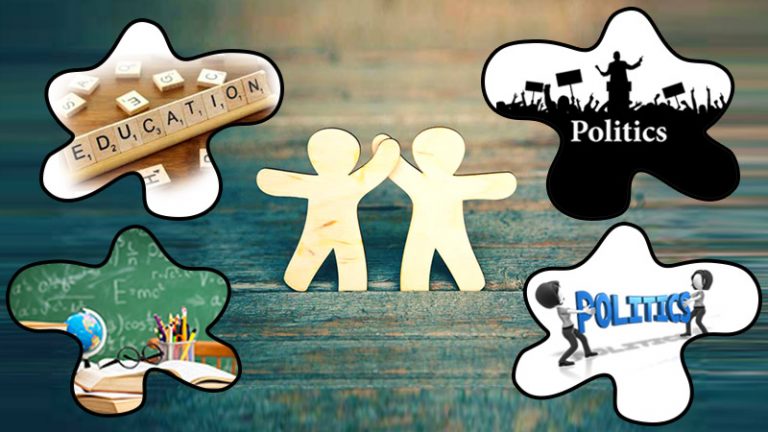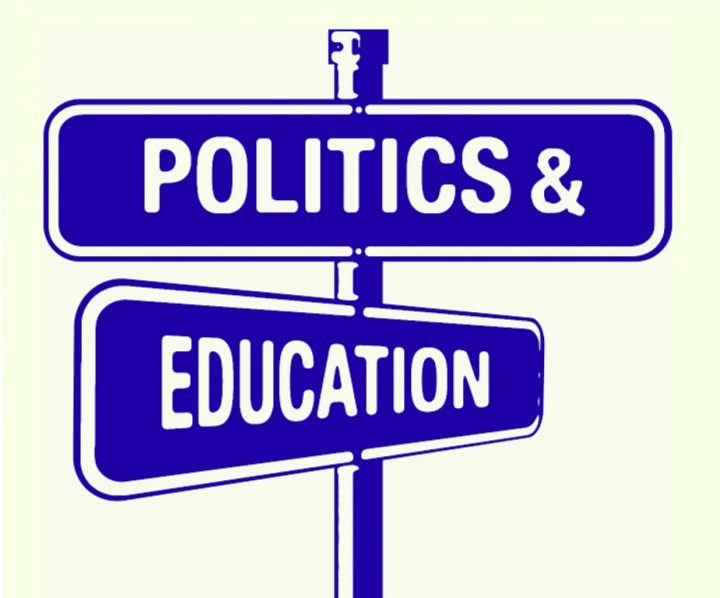
21 May 2019, Kathmandu
Education is generally considered to be among the strongest individual-level predictors of political participation. However, a number of studies points towards a more contextualized understanding of the relationship between education and political participation.
A recurring theme in the debates about “political education” is the effect that schools or other educational institutions have on influencing the political involvement of students. One of the theoretical objectives of education is to achieve politically active individuals. Now, to what extent are education and political ideas related? And what is the nature of that relationship?
We focus on the effects that formal education has on political life. Obviously, education covers much more than what happens in purely academic life, but this is a great factor to consider. In this sense, the “political effects” that we are going to take into account in this article are: political implication, political attitude and political knowledge.
What affects who participates in politics? In most studies of political behaviour it is found that individuals with higher education participate to a larger extent in political activities than individuals with lower education. According to conventional wisdom, education is supposed to increases civic skills and political knowledge that functions as the causal mechanisms triggering participation. However, recently a number of studies have started dealing with the question of whether education is a direct cause for political participation or merely works as a proxy for other factors, such as pre-adult socialization or social network centrality.

External variables that affect education and political ideas
At the statistical level, when we talk about modulating variables, external or third variables, we refer to the external factor that causes a correlation between two variables. For example, the number of hospitals and prisons in a city correlate, those cities that have more hospitals have more prisons. This is due to a third variable that affects both: the population.
In the case of education and political ideas, there are external factors that affect these two variables explaining part of their correlation. Among these factors, the most relevant are: cognitive abilities, personality and socio-economic level. In the case of cognitive abilities, the relationship is quite obvious. A higher verbal capacity, an abstract reasoning, a good memory, together with other capacities, help to progress both in formal education and in political capacity. Regarding personality, it is important to understand that certain attitudes can affect education and political ideas. For example, all those predispositions to learn, browse or research will go in favor of greater academic achievement and greater notions of policy.
Another key aspect is the socio-economic level, since political life and higher formal education are socially restricted domains. Many people can’t study for a career because they do not have the necessary resources to do so. In the same way, those with a low socio-economic status do not usually spend time in political life; either because they are expelled from it directly or because they spend most of their time trying to survive in precarious working conditions.
Direct variables in education that affect political ideas within the great variability that exist within formal education and we find that different ways of organizing such as education causes differences in what we have called political capacity. This shows us that both variables have a direct relationship between them. But what specific aspects affect this relationship? The most relevant are: the contents of the curriculum and the educational values.

Relationship between education and politics
Why do highly educated persons participate more in political activities? In their seminal work, Verba, Schlozman and Brady explain that: ‘Education enhances participation more or less directly by developing skills that are relevant to politics – the ability to speak and write, the knowledge of how to cope in an organizational setting’. And Lewis-Beck et al. point out that: ‘With more formal education comes a stronger interest in politics, a greater concern with elections, greater confidence in playing one’s role as a citizen, and a deeper commitment to the norm of being a good citizen. Hence, education increases skills and knowledge but might also affect political interest and efficacy; factors that all in turn trigger participation. Moreover, in a classic text, Converse went even further by emphasizing that education ‘is everywhere the universal solvent, and the relationship is always in the same direction. The higher the education, the greater the ‘‘good’’ values of the variable. This idea is, explicitly or implicitly, widely accepted in political behavior research and the relationship between education and political participation is perhaps the most well-established relationship that exists in research on political behavior.

Politics and education in the past
Historically, the relationship between politics and education has worked well. Politicians offer a vision of the sort of society they want, and education has been one of the major means of achieving it. When the vision of politicians and society (or at least those who had the vote) was to have wealth concentrated in the hands of a small number of people and a social structure that didn’t change, the education system delivered that. Only the children of the rich and powerful received a formal education. When the vision of society needed more highly educated people, the school system was changed to deliver it. Then, when formal education for girls was introduced, the curriculum still reflected the role society expected of women.
Perhaps the biggest change to the education system was in the years after the Second World War, with the need to rebuild industry and society and advances in technology. For the first time, the economy needed a significant number of well-educated people, and society wanted a country of greater opportunity. The 1944 Education Act and the tripartite system that followed were designed to deliver that.
Politics and education today
Now, we face the need for even greater change. We need even more highly skilled people so we can compete in a global economy, and we understand better the social consequences for individuals and society when children are failed at school. Across the political spectrum there is a view that we need an education system that has universal high standards and is inclusive, and the public have far higher expectations than used to be the case.
However, politics has always been better at gate keeping than gate opening. It is well practised at building education systems that allow a few to reach the top, but it is much less sure of the levers it needs to use to deliver high standards for all. Yet there seems to be emerging agreement across the political parties as to what those levers might be.
The Conventional View
According to the absolute education model, illustrated by the solid line in Figure 1, education has a direct causal effect on political participation (and for that reason this model is sometimes synonymously referred to as the ‘education as a cause view’). Education increases civic skills and political knowledge, which function as the causal mechanisms triggering participation. This is also sometimes referred to as ‘the cognitive pathway’, i.e. what individuals learn at school has positive effects on their cognitive ability, which in turn affect participation. In addition to skills and knowledge, it has also been argued that education triggers political efficacy. Jackson explains this idea in this way: ‘Schooling enhances both the belief that the potential voter can influence what the government does (external efficacy) and the belief that the potential voter has the competence to understand and participate in politics (internal efficacy)’.Hence, education increases citizens’ beliefs that they can effectively play a role in the political process.Education is generally considered to be among the strongest individual-level predictors of political participation. However, a number of studies points towards a more contextualized understanding of the relationship between education and political participation.
Education has a good record of delivering what society asks of it, but the enormity of the demands now means that we need a better way of framing the discussions between practitioners, researchers, and politicians.










